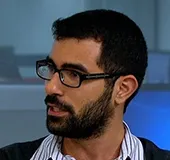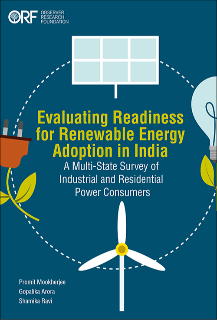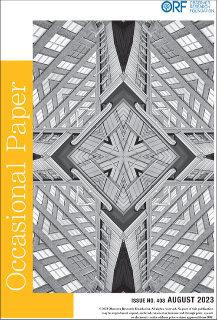
"We will have a maximum of 800 fatalities, nothing will change in the country,” Brazilian President Jair Bolsonaro said of COVID-19 in March 2020.<1> A few days earlier, the World Health Organization (WHO) had declared the health crisis a pandemic. Six months on, not only have Bolsonaro's predictions proved to be completely incorrect—the country’s death toll has exceeded 110,000 by the end of August—but several internal and foreign policy structures changed over this period.
According to the WHO, Brazil today is one of the global epicenters of the pandemic.<2> Despite having one of the lowest testing rates in the world, more than three million Brazilians have been infected with the virus. Brazil's catastrophic COVID-19 numbers have complex explanations. The country’s size—it is the largest country in South America—already indicates that the virus has a large area to spread. With population centers with varied characteristics, from traditional urban megacities such as São Paulo, to neighbourhoods amid Amazonian biomes such as Manaus, the country has had difficulty in creating uniform public policies for its citizen’s health. Brazil also has a history of social inequality, forcing a significant portion of the population to live in unhealthy conditions in favelas (slums) and making them prone to diseases.
Brazil's geographic and social configuration, however, is not the reason for its terrible COVID-19 numbers. The main culprit is actions taken by President Jair Bolsonaro’s federal government. Bolsonaro has denied the seriousness of the situation from the start, calling it a “little flu”<3> with a minimal number of deaths. The president has used controversial phrases, such as “we will all die someday,” when dismissing measures like social distancing and isolation.<4>
As the situation worsened, Bolsonaro was quick to emulate US President Donald Trump, whom he likes to compare himself to, by indicating that he had found a cure in ‘chloroquine,’ which is normally used to treat malaria.<5> Although there are no serious studies that prove the effectiveness of the drug, he determined that the army's laboratories would produce the pill and distribute it throughout the country. In June, when announcing that he had contracted COVID-19, Bolsonaro stated that he was being treated with the drug.<6> Although Trump abandoned the defence of the drug, even sending the US’s remaining stock of pills to Brazil, Brazil has already spent millions of dollars on production.<7>
Bolsonaro's comments have had a notable impact in the fight against COVID-19—areas that voted for him in the presidential elections have the lowest levels of social isolation.<8>Bolsonaro's decision to minimise the pandemic is the result of a political calculation that has worked so far. Since March, the president has said that the economic impacts will be worse than the health consequences. Even without any scientific support, the president insists that "hunger and unemployment will be worse than the virus".<9>As the pandemic spread unevenly across the country, the poorer part of the population first felt the economic impacts of isolation measures rather than the virus itself. Moreover, Bolsonaro blamed state governors and the Supreme Court for defending measures to restrict movement.<10> The narrative seems to have had an effect—recent polls show that a significant part of the population does not blame Bolsonaro for errors in combating the pandemic, with government approval rates increasing in recent weeks.<11> The president also benefited from the creation of emergency economic aid, which distributed about US$120 each to over 60 million people. Despite the move being Congress approved, the Bolsonaro government was quick to take credit.
(Unequal) technological solutions
Despite the pandemic having hit the whole country, the consequences of the health emergency have differed for different parts of the population. The wealthiest part of the population was quick to adopt working from home and, in some cases, even took refuge in the countryside. A significant portion of the population quickly migrated to digital services, with companies developing mechanisms to maintain production and the health of employees.
With unemployment rising, a significant portion sought alternative income through delivery services, such as Uber Eats. The use of these mobile apps increased by 700 percent,<12>especially by the middle and upper classes, who were afraid to leave their houses. In the last few months, contagion rates have centered on the poorest population who had to remain on the streets. The uberisation of the Brazilian economy has caused social shocks, with apps workers constantly protesting, demanding higher wages and social protection.
Governance crisis
Governance fragmentation in Brazil is perhaps one of the clearest consequences of the pandemic. With the federal government's refusal to adopt practices to curb the spread of the virus, state governors and even mayors tried to fill the vacuum. This is particularly relevant given that the budget and the decision-making process are strongly centralised in the federal government. Despite state governors receiving support from the population at the beginning of the health crisis, recent polls show that these numbers are falling, indicating a certain tiredness of isolation measures and the worsening of the economic reality.<13>
The absence of a central authority has even galvanised the capabilities of criminal groups. In poorer neighbourhoods of Rio de Janeiro, organisations linked to drug trafficking have begun to distribute medicines and masks. In other cases, armed groups that operate mainly by collecting illegal taxes, compelled stores to open against the orders of governors. Areas controlled by armed militias have the highest levels of contamination in the state of Rio de Janeiro, with consequences that are not yet fully explored.<14>
The fragmentation of the political leadership has also changed the way Brazil deals with international partners and leverages new international agents. Traditionally, Brazilian foreign policy is administered by the Ministry of Foreign Affairs, with few windows of opportunity for other political groups to act. Although there have been some attempts in recent years by organised groups to be included in the decision-making process, most relevant actions remain concentrated in the federal government. But Bolsonaro’s rise to power has altered this situation and the COVID-19 crisis has accelerated it.
The Bolsonaro government's reluctance to adopt more vigorous measures against the pandemic bear a strong resemblance to the actions employed by the Trump administration in the US. The similarity is not a coincidence. Since coming to power in 2018, Bolsonaro has adopted an unrestricted alliance policy with the US, abandoning traditional Brazilian agendas in the international context, such as mediation in the Israel and Palestine conflict, to place himself as an unrestricted supporter of Tel Aviv.
This change in foreign policy forced subnational actors to produce different narratives. A key issue was the environment, after Brazil was criticised for the management of the Amazon fires in 2019. At that time, Bolsonaro declared that the Amazon “belongs to Brazil”<15> and that he would not tolerate any external interference. Meanwhile, various state governors were quick to seek closer ties with the European Union, fearing that the bloc would create barriers to local products with environmental justifications.<16>
The China factor
The most important example of this movement is related to China. Despite being Brazil's largest trading partner, Bolsonaro has made critical statements about Beijing, complaining that the Chinese want to "buy the whole country".<17> The main dispute is currently over the issue of the implementation of 5G internet in the country—the US has already said that if Brazil allows Huawei to enter its domestic market, it will suffer reprisals from Washington.<18>
Narratives against China, often with a strong racist connotation, spilled over into the COVID-19 issue, with federal government ministers calling it the "Chinese virus" and discussing conspiracy theories over Beijing's geopolitical gains from the health crisis.
Government fragmentation, however, opened up space for state governors and mayors to start talking directly to China, taking advantage of the fact that ‘mask diplomacy’<19> was being ignored by the Bolsonaro government. Beijing has been quick to establish agreements with several states such as São Paulo and Maranhão, providing hospital supplies and respirators.<20> With the advance of vaccine research, China has passed over the formal structures of the federal government and established partnerships with state laboratories, promising to distribute the drug as soon as possible.
This particularity about the prospects for China in Brazil must be considered when analysing Beijing's influence in Latin America. In the US, there seems to be a bipartisan consensus on the possible threats that the Chinese rise will have on the country. In Brazil, a division is formed over a possible alliance with China, with political parties taking a different position. In this sense, it is curious to see the Consortium of the Northeast, a grouping of state governments from that region Brazil, which has established fruitful relations with China and has already stated that it wants to set up a foreign ministry parallel to that of the federal government.<21>
Although the pandemic is the worst tragedy in Brazil in a century, with hundreds of thousands of deaths and an economic recession, there remains a perception that the changes enacted during this period will be done away with post pandemic. But rather than initiating momentary change, the pandemic has accelerated shifts that were already happening, internally and externally.
This essay originally appeared in Rebooting the World
Endnotes
<1> “Four Months after Bolsonaro Predicted Less than 800 Deaths from the Coronavirus, Brazil Exceeds 80,000 Registered Deaths”, Time24 News, July 21, 2020.
<2> Jan D. Walter, “Coronavirus Pandemic: Is Brazil the New Epicenter?”, DW, May 13, 2020.
<3> Nick Paton Walsh, Jo Shelley, Eduardo Duwe and William Bonnett, “Bolsonaro calls coronavirus a ‘little flu.’ Inside Brazil’s hospitals, doctors know the horrifying reality”, CNN, May 25, 2020.
<4> Vanessa Barbara, "‘We Will All Die One Day,’ My President Said”, The New York Times, April 14, 2020.
<5> Erick Gimenes, “From denial to contagion: Jair Bolsonaro’s path towards the coronavirus”, Brasil de Fato, July 9, 2020.
<6> Carlie Porterfield, “Bolsonaro Is Taking Hydroxychloroquine To Treat His Coronavirus”, Forbes, July 8, 2020.
<7> Matt Sptenalnick, “U.S. Sends Brazil 2 Million Doses of Hydroxychloroquine, Drug Touted by Trump”, Reuters, June 1, 2020.
<8> Fernando Canzian, “Falas de Bolsonaro contra isolamento podem ter matado mais seus eleitores, aponta estudo”, Folha de S.Paulo, June 30, 2020.
<9> “Brazil president says hunger kills more than the coronavirus”, Reuters, March 31, 2020.
<10> “In Bolsonaro’s Brazil, Everyone Else Is to Blame for Virus”, Los Angeles Times, May 25, 2020.
<11> Carlos Rydlewski “Cai apoio da população a governadores, o que pode beneficiar Bolsonaro, mostra pesquisa”, Valor Econômico, April 24, 2020.
<12> “Downloads de apps de delivery crescem 700% na quarentena em SP”, ECommerce Brasil, June 3, 2020.
<13> Caio Spechoto, “Prefeitos e governadores perdem popularidade, mostra DataPoder360”. Poder360, July 15, 2020.
<14> Fernando Brancoli, “Coronavirus Puts Criminal Governance at a Crossroads: Parastate authority creeps further into everyday life in Rio de Janeiro’s favelas as militias seize the pandemic to expand their control.” NACLA Report on the Americas: Vol 52, No 3.
<15> “Amazon Rainforest Belongs to Brazil, Says Jair Bolsonaro”, BBC News, September 24, 2019.
<16> Marina Lopes, “Bolsonaro’s Amazon-Sized Spat with Germany and Norway Threatens Europe-South America Trade Deal”, Washington Post, August 21, 2019.
<17> Ricardo Senra, “Um ano após reclamar que China ‘compraria o Brasil’, Bolsonaro quer vender estatais e commodities em visita a Xi Jinping”, BBC News Brasil, October 23, 2019.
<18> “Brazil May Face ‘consequences’ If It Gives Huawei 5G Access, Says U.S. Ambassador”, Reuters, July 29, 2020.
<19> Brian Wong, “China’s Mask Diplomacy”, The Diplomat, March 25, 2020.
<20> “China’s Sinopharm to Test Potential COVID-19 Vaccine in Brazil”, Reuters, July 30, 2020.
<21> Afonso Benites, “Covid-19: Desconfiados de Bolsonaro, governadores recorrem à China por ajuda contra coronavírus”, El País, March 25, 2020.
The views expressed above belong to the author(s). ORF research and analyses now available on Telegram! Click here to access our curated content — blogs, longforms and interviews.




 PREV
PREV


